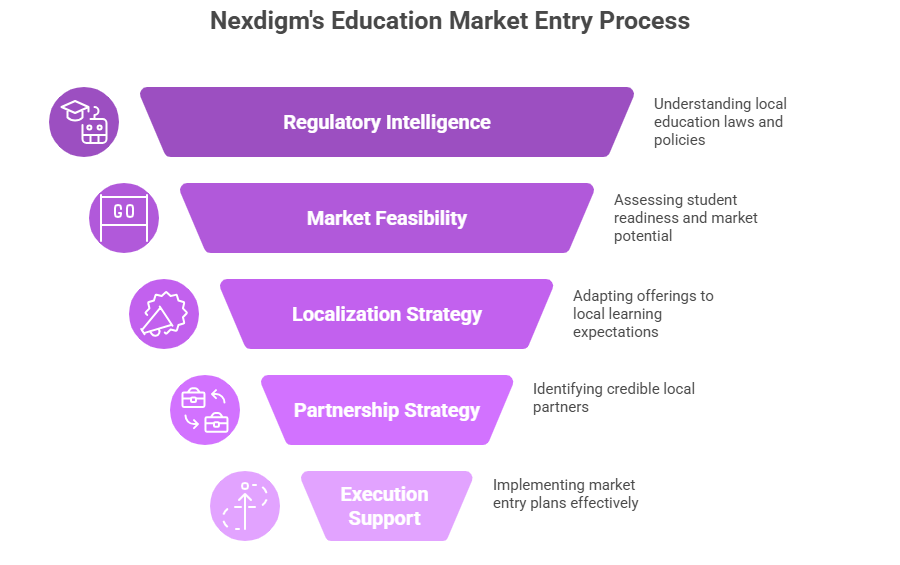Global education is powered by mobility, digital access, and student choice. Online universities, cross-border degree pathways, and micro-credential ecosystems are accelerating this shift, with more than 70% of new learners globally engaging with at least one form of digital or hybrid learning.
But while technology creates global reach, scaling across countries demands far more than digital delivery. For universities, EdTech firms, and training providers, global leadership now requires regulatory intelligence, student-centric localization, and market-aligned execution.
Why Global Education Expansion Is Increasingly Complex
The rise of digital learning, international partnerships, and cross-border degree formats has opened unprecedented opportunities. Yet, these opportunities come with friction.
- Regulatory and Accreditation Fragmentation: Regulatory misalignment can delay market entry by 6 to 24 months and significantly raise compliance costs.
- Cultural and Pedagogical Variations: According to studies, over 60% of students in emerging markets prefer contextualized content over standard global templates.
- Digital Infrastructure Gaps: The World Bank reports that 40% of learners in low- and middle-income countries lack reliable internet or devices.
- Affordability and Pricing Sensitivities: In many emerging markets, fewer than 25% of learners can afford Western-style pricing models without localized tiers or financing partnerships.
Nexdigm’s Global Education Market Entry Strategy Framework
Nexdigm’s Global Education Market Entry Strategy Framework helps education providers build a precise, data-backed roadmap from market evaluation to execution. Our framework integrates four interconnected pillars.

Regulatory and Policy Intelligence
Education markets are shaped by policy. Nexdigm maps:
- Accreditation requirements
- Online and hybrid learning regulations
- Cross-border qualification pathways
- E-learning content licensing
- Student data privacy and protection mandates
This ensures institutions enter markets with regulatory certainty, reducing approval delays and compliance risks.
Market Feasibility and Student Readiness Assessment
Market size does not equal market readiness. Nexdigm evaluates:
- Digital adoption and device penetration
- Student demographics and affordability
- Preferred learning formats
- Competitor benchmarks
- Employability-led demand
This helps institutions choose the right models for regions where demand, access, and readiness align.
Localization and Partnership Strategy
Trust drives education adoption. Nexdigm supports clients with:
- Curriculum and pedagogy localization
- Language integration
- Local pricing optimization
- Identification of academic partners, EdTech distributors, and corporate upskilling collaborators
Localized programs consistently achieve 30–50% stronger student engagement and better brand recall.
Go-to-Market Planning and Execution Support
Nexdigm converts insights into action through:
- Pilot program design
- Student acquisition and marketing strategy
- Channel partner onboarding
- Pricing models
- Post-launch analytics and optimization
This ensures expansion is sustainable, measurable, and compliance-aligned.
Through this framework, Nexdigm transforms expansion into a data-backed growth journey, ensuring that every education initiative is compliant, contextually relevant, and strategically differentiated in competitive global markets.
Nexdigm Case
Nexdigm helped a global learning provider enter two high-growth Asian markets by mapping regulations, localizing curriculum, and designing a targeted student acquisition plan. Thus, resulting in a 34% faster launch and significantly improved enrollment traction within the first semester.
To take the next step, simply visit our Request a Consultation page and share your requirements with us.
Harsh Mittal
+91-8422857704

